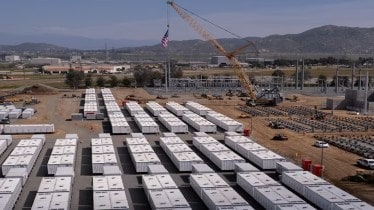By Manikumar Uppala
Batteries are practically indispensable in the 21st century. Our lives are tech-driven, and batteries fuel our modern lives, including smartphones, laptops, vehicles and energy storage. Convenience of batteries has a hidden environmental cost, due to improper disposal.
Studies state that improper disposal of batteries contributes to over 40% of the hazardous chemicals found in landfills. The statistic makes it glaringly obvious – how something must be done to prevent batteries ending up in landfills. When batteries are disposed of with regular trash, they end up in landfills and this has far-reaching consequences.
Batteries contain many metals and hazardous chemicals, including:
- Metals: Mercury, cobalt, lead, nickel, and zinc are commonly found in various battery types. If batteries are disposed in landfills, the metals in the batteries can seep into soil and groundwater which can then enter the human food chain. These metals are known to be toxic to humans and wildlife. They can cause neurological and kidney damage among a host of potential health issues.
- Lithium and Other Reactive Materials: Lithium-ion batteries, contain lithium, which is a highly reactive metal. If lithium is oxidized, there is a resulting heat reaction and this reaction can lead to explosions and fire. Thus, when these batteries are damaged or improperly disposed of, they can pose a fire hazard and release harmful fumes, toxic for the environment.
Environmental Consequences
There are several environmental consequences of improper battery disposal:
- Groundwater Contamination: Groundwater is the source of 30% of the world’s freshwater supply and leachate from landfills can contaminate it. This contamination can lead to serious health risks for those who consume the polluted water including blurred vision, diarrhoea, abdominal swelling, kidney damage, neurological disorders, etc. Once the groundwater is contaminated, it is difficult and expensive to reverse the damage. The toxic chemicals will remain in the environment as they do not break down easily and cause harm to neighbouring ecology.
- Soil Contamination: Metals entering the soil from waste batteries in landfills can harm plant growth, affect the food chain, and pose risks to human health through direct contact or consumption of contaminated produce.
- Air Pollution: Lithium-ion batteries being volatile, can cause fires in landfills, releasing toxic fumes and particulate matter into the air if they are improperly disposed of. The landfill fires can smoulder for many years. The pollutants released into air, can pose many risks to human health including pulmonary diseases, lung diseases, and cardiovascular diseases.
- Harm to Wildlife: Animals can ingest batteries or come into contact with contaminated soil and water, leading to poisoning and other health problems.
The Importance Battery Recycling
Lithium-ion batteries have become the preferred power storage source for portable electronics and electric vehicles, due to their high density and long lifespan. Their growing popularity means that one must keep in mind where end-of-life batteries may go. Recycling these batteries is crucial for several reasons:
- Resource Recovery: Lithium, cobalt, and nickel are critical minerals that make up lithium-ion batteries. Mining these metals has social and environmental consequences. Dumping a lithium-ion battery is equivalent to dumping money into landfills as the recovered metals from spent lithium-ion batteries can be reused in new batteries or other applications instead of mining.
- Hazardous Waste Reduction: Recycling prevents hazardous materials from entering landfills and contaminating the environment.
What can be done to avoid batteries ending up in landfills?
Every individual can play a part in responsible battery disposal. The very first step is education and awareness. People are simply unaware of how to dispose of batteries, or even that batteries need to be discarded in a specific manner. Raising awareness about the health hazards of improper li-ion battery disposal and the fire risks involved is a must. Community recycling programs and collection centres are a good place to start. Extended producer responsibility is a farsighted system as well, requiring producers to recycle- meaning customers are always aware that they may approach manufacturers for value for their old batteries.
Recycling is the only solution for spent lithium-ion batteries. It enables the recovery of valuable materials for new batteries along with preventing waste.
Conclusion
Improper battery disposal can pose huge problems for future generations. I believe that education and awareness are key to addressing this issue. Just as batteries have become a part of our life, so must battery recycling habits. With over 40% of hazardous chemicals in landfills coming from batteries, the risks of groundwater contamination are too serious to ignore. By understanding the risks and taking responsible actions, we can collectively minimize the environmental impact of batteries and create a more sustainable future.
About the Author: Manikumar Uppala is the Co-Founder and Chief of Industrial Engineering at Metastable Materials.
Disclaimer: Views expressed are personal and do not reflect the official position or policy of Financial Express Online. Reproducing this content without permission is prohibited.
